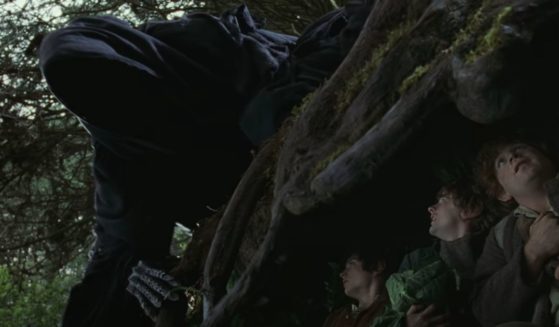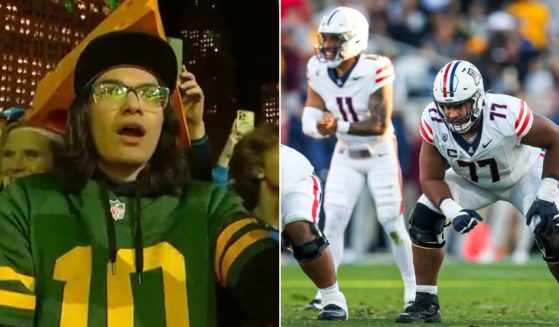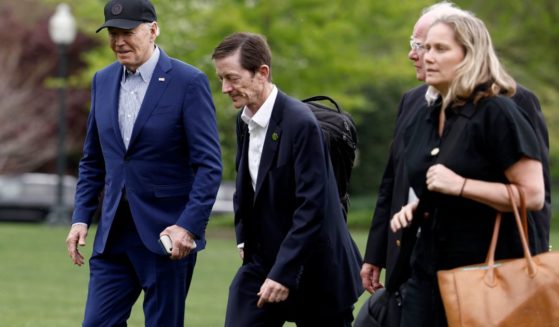Eye-Opening ER Data Shows Children's Mental Health Spiraling Amid Lockdowns, School Closures
With schools closed, routines disrupted and parents anxious over lost income or uncertain futures, children have been forced to shoulder new burdens many are unequipped to bear.
By early fall, many Massachusetts emergency rooms were seeing about four times more children and teens in psychiatric crisis than usual, according to Ralph Buonopane, a mental health program director at Franciscan Hospital for Children in Boston.
”I’ve been director of this program for 21 years and worked in child psychiatric services since the 1980s and it is very much unprecedented,” Buonopane said. His hospital receives ER transfers from around the state.
While ER visits for many health reasons other than COVID-19 declined early in the pandemic as people avoided hospitals, the share for kids’ mental health-related visits climbed steadily from mid-April through October, according to a recent Centers for Disease Control and Prevention report.
Claire Brennan Tillberg’s 11-year-old daughter was one of those kids who sought care. The autistic Massachusetts girl has been hospitalized twice in recent months after revealing that she’d had suicidal thoughts.
She’d been hospitalized before, but Tillberg said things worsened when lockdowns hit and her new school and therapy sessions went online. Suddenly the structure and routines that many children with autism thrive on were gone.
“She’d never met the teacher, never met the kids,” Tillberg, a psychotherapist, said.
“She felt more isolated, more and more like things aren’t getting better. Without the distraction of getting up and going to school or to camp … sitting at home with her own thoughts all day with a computer has allowed that to worsen.’’
Studies and surveys in Asia, Australia, the U.S., Canada, China and Europe have shown overall worsening mental health in children and teens since the pandemic began.
In a World Health Organization survey of 130 countries published in October, more than 60 percent reported disruptions to mental health services for vulnerable people including children and teens.
Emergency rooms are often the first place kids facing a mental health breakdown go for help.
Some are treated there and sent home. Some need inpatient care, but many hospitals don’t offer psychiatric treatment for kids and transfer these children elsewhere.
Some treatment centers won’t take kids without proof they don’t have COVID-19, “which is hard because you can’t always find a rapid test,” Ellie Rounds Bloom said.
Her 12-year-old son has “significant mental health issues” and has experienced several crises since the pandemic began. The Boston-area boy has been hospitalized since October after spending 17 days in ER.
Yale-New Haven Children’s Hospital has started offering phone therapy to kids waiting in its emergency room for mental health care, according to Dr. Marc Auerbach, a pediatric ER physician.
One in 6 U.S. children has a diagnosed mental, behavioral or developmental disorder, according to the CDC.
Data show problems like depression become more prevalent in teen years; 1 in 13 high school students has attempted suicide and at least half of kids with mental illness don’t get treatment.
Shortages of psychiatrists in some areas and hospital closures have worsened the problem and contributed to rising ER mental health visits, a Pediatrics journal review said.
The number of U.S. children’s mental health hospitals dropped to 38 from 50 between 2008 and 2018.
The number of U.S. hospitals reporting that they offer inpatient psychiatric services to adults or children dropped by almost 200 from 2008 to 2018, when the tally was 1,487, American Hospital Association data show.
At the 66-bed Clarity Child Guidance Center in San Antonio, demand has been surging, according to CEO Jessica Knudsen.
Some nights, there have been five or six kids sleeping in an observation area waiting for beds, she said.
’’I feel OK once they get to us,” even if in the observation room, she said. “They’re getting eyes on them by a mental health professional.”
Kids left waiting idly in ERs or who don’t seek emergency care, ‘‘that’s my real worry,’’ Knudsen said.
The Western Journal has reviewed this Associated Press story and may have altered it prior to publication to ensure that it meets our editorial standards.
Truth and Accuracy
We are committed to truth and accuracy in all of our journalism. Read our editorial standards.












